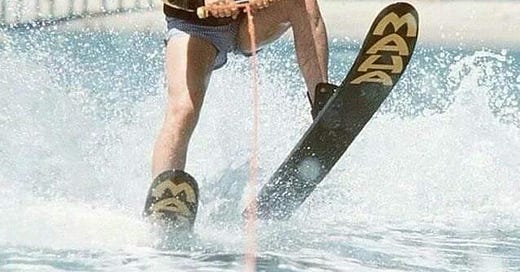Churchill Falls, Again, but Worse
Celebritocracy jumps own shark in dismal reboot of failed reboot
Andrew Furey has produced a masterful recreation of the legendary Churchill Falls failure, giving Quebec another 50 years of super-cheap electricity with nothing in it for Newfoundland and Labrador except a few construction jobs. For good measure, Furey fell for the same bait-and-swit…
Keep reading with a 7-day free trial
Subscribe to Bond Papers to keep reading this post and get 7 days of free access to the full post archives.




